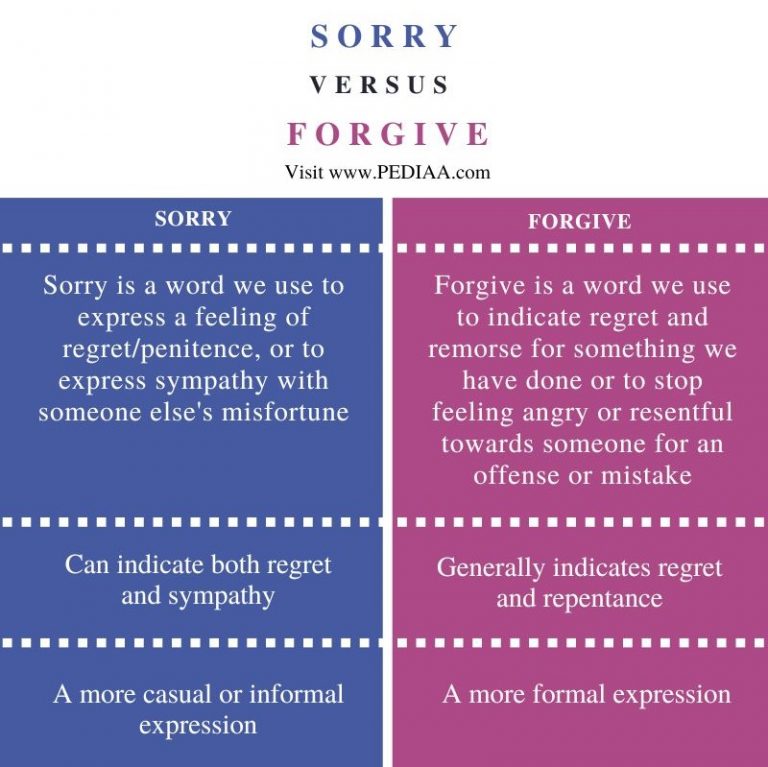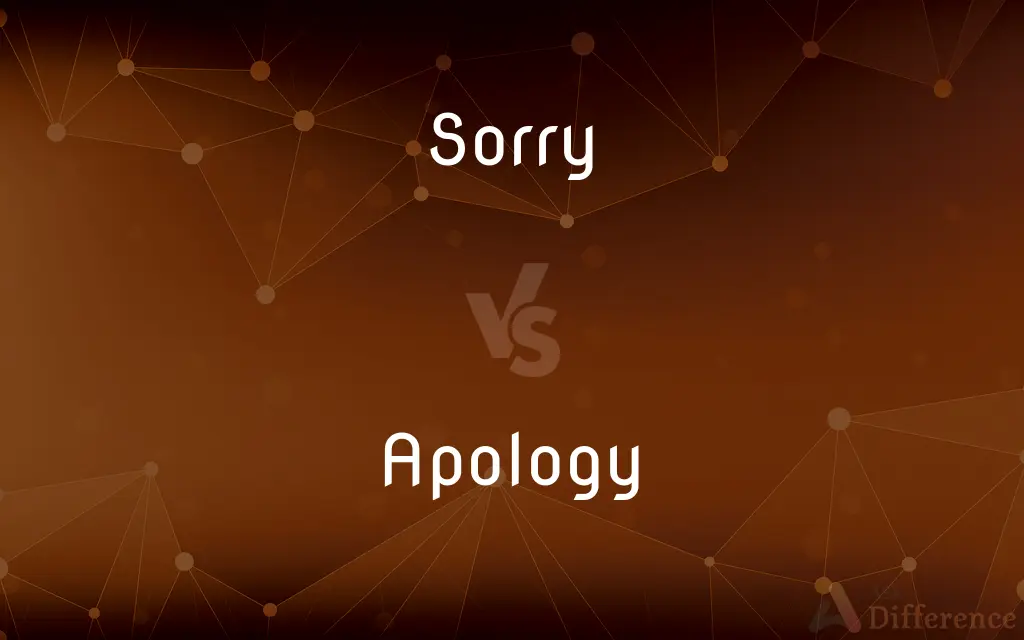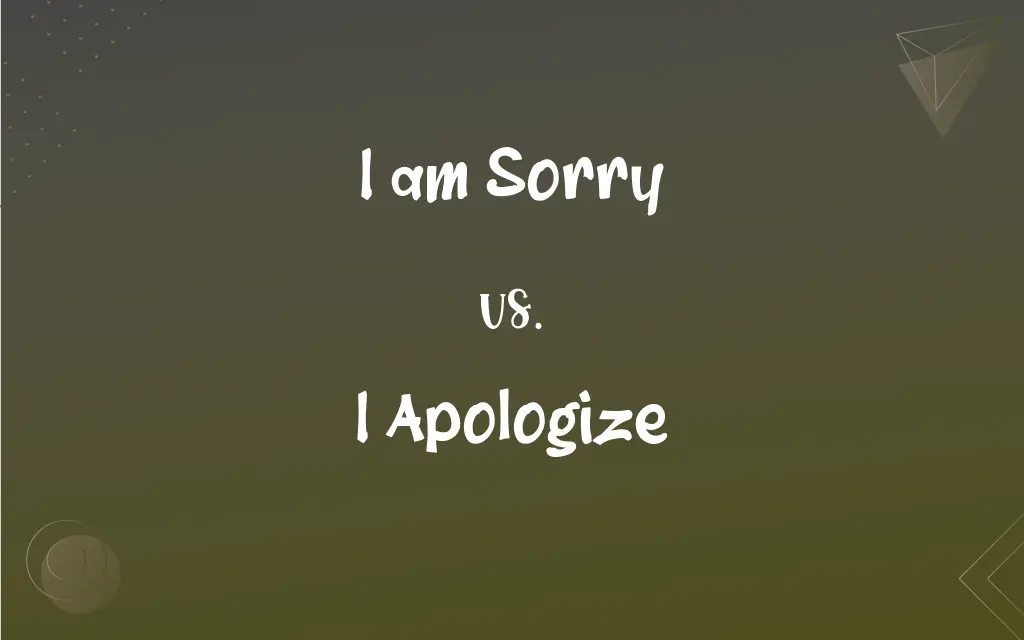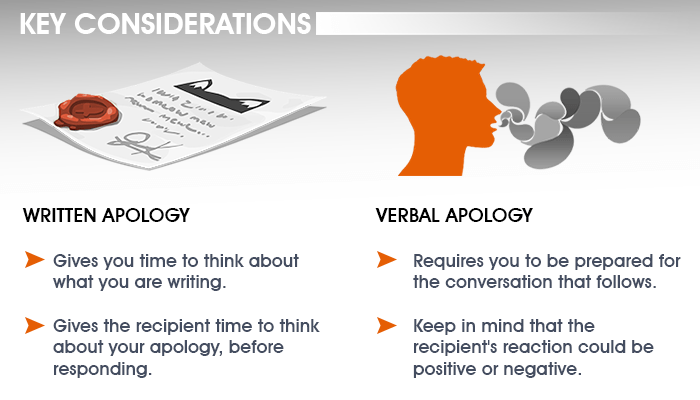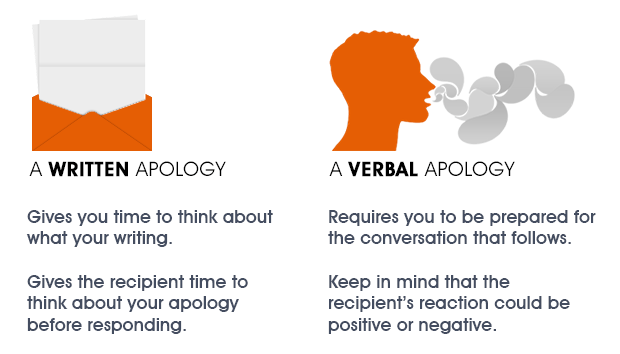Difference Between Sorry And Apologize

In the intricate dance of human interaction, apologies serve as crucial balms for wounded relationships and fractured trust. However, a subtle yet significant distinction often blurs the lines between simply expressing sorrow and delivering a true, restorative apology. This misunderstanding can hinder genuine reconciliation and perpetuate lingering resentment.
At its core, the confusion stems from the common interchangeability of the words "sorry" and "apologize." While both terms involve acknowledging a transgression, their underlying intent and impact can vary greatly. This article delves into the nuances between expressing sorrow and offering a sincere apology, drawing upon psychological research and communication expertise to illuminate the path toward effective reconciliation.
The Nuances of 'Sorry': Empathy Without Ownership
The word "sorry" often conveys empathy or regret, but it doesn't necessarily imply an acceptance of responsibility. You might say "I'm sorry" to hear about someone's misfortune, even if you had no part in causing it.
This usage highlights the primary function of "sorry": to express sympathy and acknowledge another person's pain. It’s a valuable expression of emotional connection, but its impact on mending broken trust is limited.
Examples of 'Sorry' in Context
Consider the phrase, "I'm sorry you feel that way." This statement, while acknowledging the other person's emotions, can be perceived as dismissive. It avoids directly addressing the speaker's own role in causing those feelings.
Similarly, saying "I'm sorry if I offended you" is a conditional apology that deflects accountability. The emphasis shifts to the offended party's sensitivity rather than the speaker's actions.
'Apologize': Taking Ownership and Seeking Reconciliation
In contrast to "sorry," the word "apologize" signifies a direct acknowledgement of wrongdoing and a commitment to making amends. It involves taking responsibility for one's actions and expressing remorse for the harm caused.
A true apology goes beyond simply stating regret; it includes a clear explanation of the offense, an expression of genuine remorse, and a willingness to repair the damage. This makes the apology powerful and restorative.
The Components of an Effective Apology
According to Dr. Harriet Lerner, a renowned psychologist and author of "Why Won't You Apologize?", a sincere apology typically includes these key elements:
First, specific acknowledgement of the offense is crucial.
"State clearly what you did or didn't do that caused harm," advises Dr. Lerner.
Second, genuine remorse and empathy must be expressed. This involves acknowledging the impact of your actions on the other person.
Third, taking responsibility without making excuses is essential. Avoid deflecting blame or minimizing the offense.
Fourth, offering to make amends demonstrates a commitment to repairing the damage. This might involve a direct apology, restitution, or a promise to change behavior.
The Impact of Sincere Apologies on Relationships
Research consistently demonstrates that sincere apologies can significantly improve relationships after a conflict. A study published in the Journal of Social and Personal Relationships found that apologies that include an expression of empathy and a commitment to change were more likely to be accepted and lead to forgiveness.
Furthermore, a well-delivered apology can foster trust and strengthen bonds, even after significant breaches of trust. It signals to the injured party that their feelings are valued and that the offender is committed to preventing future harm.
Challenges in Delivering Effective Apologies
Despite the benefits, delivering a genuine apology can be challenging. Ego, pride, and fear of vulnerability often hinder the process.
Some individuals struggle to admit wrongdoing or fear the consequences of taking responsibility. This can lead to insincere or incomplete apologies that fail to address the underlying issues.
Cultural differences can also play a role in how apologies are perceived and delivered. What is considered an appropriate apology in one culture may be seen as inadequate or even offensive in another.
Moving Forward: Cultivating a Culture of Accountability
Ultimately, understanding the distinction between "sorry" and "apologize" is crucial for fostering healthy relationships and building a culture of accountability. By embracing the principles of sincere apology, we can move beyond mere expressions of sorrow and toward genuine reconciliation and lasting trust.
Developing self-awareness, empathy, and a willingness to take responsibility are key steps in this process. Learning to deliver effective apologies is not only beneficial for repairing damaged relationships but also for promoting personal growth and fostering stronger connections with others.
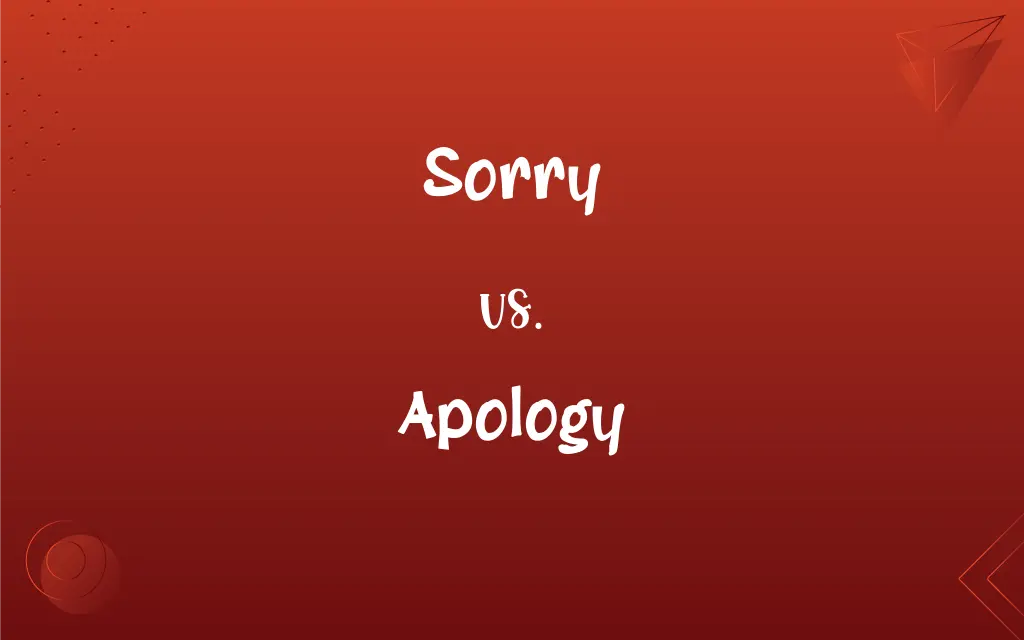
![Difference Between Sorry And Apologize ปิโยรส ศรีเดช: INFOGRAPHIC: [ENGLISG GRAMMAR] SORRY VS APOLOGIZE](https://1.bp.blogspot.com/-mOpQF0zK52w/V9tvNxTxNPI/AAAAAAAAAFg/HIYAYCb8unMqyXeFfB9nV7d7tmL-NIBFQCLcB/s1600/new-piktochart_882_922841ccbf288fd5ba01d54de27af7be77a000e9.jpeg)
